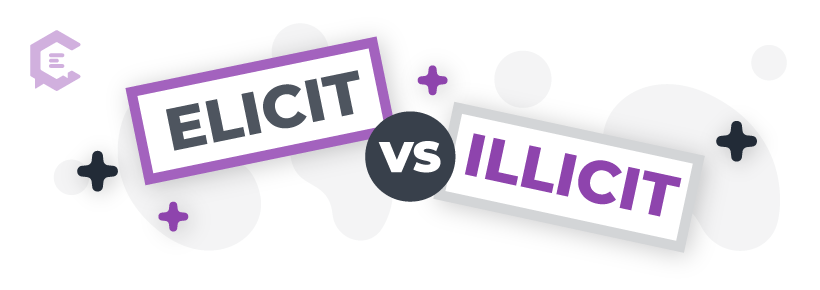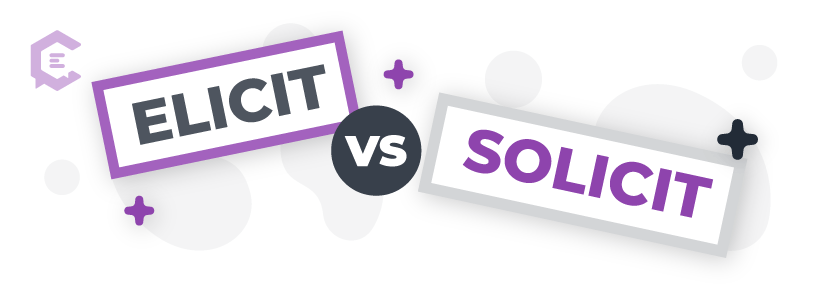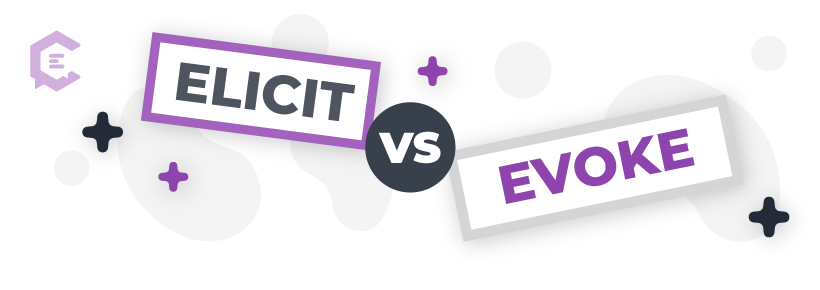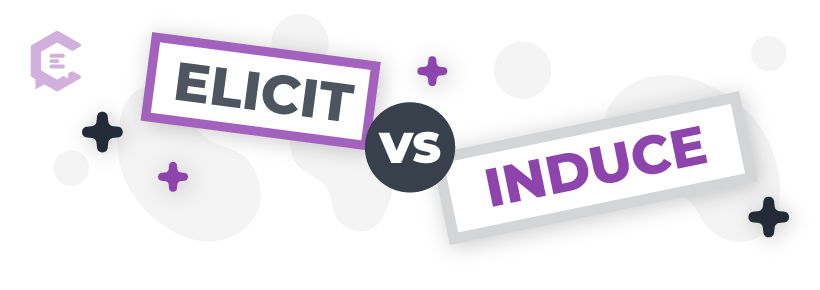It’s difficult enough to parse the meanings of similar words, but the absolute worst is when two words sound almost identical but couldn’t have less to do with each other. Such is the case of elicit vs. illicit.
 Elicit vs. illicit
Elicit vs. illicit
Though these words sound very similar and their spellings are often confused, they have nothing to do with one another. Elicit is a verb meaning to draw out or bring forth.
Example: The powerful images in the gallery were meant to elicit an emotional response from visitors.
Illicit, on the other hand, is an adjective that means not permitted or allowed. The Latin prefix il- means not or no, and is often used to give the opposite meaning to a word. Think about the word illegal if you need a hint.
Example: The company lost a lot of money because of the CFO’s penchant for illicit activities.
Though elicit and illicit merely suffer from confusion by auditory and orthographic similarity, there are several other words with which elicit is frequently confused because of their definitions. Some are almost synonyms, while some are just similar enough while still having entirely different meanings. Let’s take a look, shall we?
Elicit vs. solicit
Here’s another pair that gets our ears in trouble. Though these words sound similar and have some similarity of meaning, word choice is all about nuance. Solicit is a verb that means to make a petition or request or to seek for something by entreaty or request.
Example: She drafted a professional email in order to solicit a recommendation from her professor.
Soliciting refers to bringing something out by request, while eliciting simply refers to bringing something out.
Example: The speaker stepped up to the podium, eliciting a roar of applause from the crowd.
In this case, the speaker did not request any kind of response, but the speaker’s simple action was enough to elicit a response from the crowd.
Elicit vs. evoke
These two might give you the most trouble definition-wise. They are often quite difficult to differentiate and can be used as synonyms in some cases. Evoke means to call up or produce and is often used to reference a feeling or something intangible. In this ClearVoice post, Chad Buleen encourages authors to evoke emotions in order to make their content more memorable.
Example: Listening to the aria evoked a strong sense of nostalgia in him, as he had performed it many years ago.
Elicit means to draw out or bring forth, actions that are very similar to calling up or producing. However, elicit can also refer to a physical reaction, while evoke is more often associated with emotions or memories.
Example: Sudden movements or noises are sure to elicit a shriek from my best friend, who is very skittish.
Elicit vs. induce
To induce means to lead or move by persuasion or influence; to bring about or cause. The element of persuasion or influence is key when differentiating induce from elicit.
Example: In order to induce people to shop small, local businesses began advertising on social media.
Inducing is more active and requires intent, while eliciting is more passive and can be unintentional.
Example: The teacher’s accidental play on words elicited a laugh from the class.
 Elicit vs. illicit
Elicit vs. illicit






